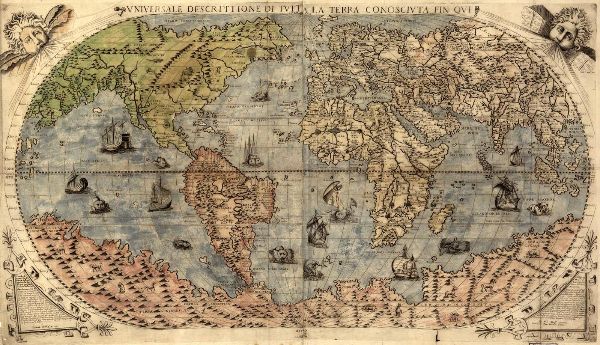7 Foreign Policy Events That Will Shape 2013


2012 was a powerful whirlwind in foreign policy. Some of the major foreign policy events of 2012 will continue to shape geopolitical relations around the would in 2013.
Three regions will be of major importance in 2013: the Middle East, Asia, and Africa.
The Middle East:
The Syrian Civil War
The Syrian revolution, which started in 2011 following the sweeping Arab uprising in North Africa, has been a much longer and devastating conflict than Tunisia, Egypt and even Libya. The Assad regime's strong resistance to compromise or relenting upon rebel groups, and the absence of agreement on an intervention in Syria of the UN Security Counsel, have caused the conflict to last for more than 20 months, with a death toll upwards of 40,000 people. However, it appears the Assad regime has been faltering, and 2013 will be a year of more change for Syria. The rebels have recently been holding sway over the government on the ground, as well as with support from around the world. More than 100 countries, including the United States, the UK and France have now recognized the Syrian National Coalition as the only representative of Syria. Even Syria's closest supporter, Russia, is now considering the fall of the Syrian government. The end of the Assad regime, also a close Iranian ally, will certainly rearrange the distribution of strength in the Middle East and will be closely monitored by the international community.
The New Government in Egypt
2012 was the year Egypt transitioned toward a more democratic state after being ruled for 30 years by Hosni Mubarak. The military, which seized power directly after Mubarak's downfall, returned power to civilians in the first free presidential election after the revolution. Mohamed Morsi, a candidate from the Muslim Brotherhood, was elected. However, the authority of President Morsi has become increasingly more contested, especially since November 22, when he passed an interim constitutional declaration granting himself extensive powers. The popular outrage continued when a rushed draft of the new constitution, which is favorable to the Islamist parties, was approved and the referendum on the constitution was held. The evolution of the international tension in the biggest Arab democracy will greatly influence the stability of the region, particularly with regards to relations with their northern neighbor, Israel.
The Israeli/Palestine Conflict
No progress towards a peace agreement between Israel and Palestine has been made in 2012, but two major events from this year will most likely shape 2013 relations. First, the region experience a burst of violence as Israel launched Operation Pillar of Defense against the Gaza strip in retaliation for rocket attacks from Hamas. Before a cease fire was found, through Egypt's mediation, Israel was on the verge of pursuing its first ground operation in Gaza since the 2008/2009 Gaza war. Second, Palestine was recognized as a non-member observer state by the UN General Assembly on November 29th, which gives the nation more participatory power within the UN. Israel has opposed this recognition and has since pursued more settlements in the West Bank. These developments will leave the peace process in an even more delicate and fragile situation in 2013.
Asia:
China Chooses New Leaders
After a year punctuated by scandals which lead to the fall of senior party officer Bo Xilai, the Chinese communist party chose new leaders during November's National Congress. Xi Jinping will replace Hu Jintao as the head of the communist party and will become the new President of China next March. He will face many challenges, as the Chinese government will need to address widespread corruption, the growing gap between the population's rich and poor, and the demand for more civil liberties from the middle class. The new government will also have to deal with rising tension with neighboring countries about the control of the South and East China Sea, especially Japan. China's management of its internal tensions will certainly affect its influence on a global scale.
The Conservative Party Returns To Power In Japan
On December 16th, the Japanese conservative party, the Liberal Democratic Party, won the general election. This brings back to power former Prime Minister Shinzo Abe. A growing popularity of the nationalist position among the Japanese population is ensuring a stricter stance towards China and some controversial attempts to re-write Japen's wartime history. Shinzo Abe's return to power could have major repercussions in its relationship with neighbors China and South Korea. The continuing confrontation with China about the Shenkaku Islands and the United States' interest in easing the tension in the region will be a major foreign policy issue in 2013.
Africa:
The Crisis in Eastern Congo
The states of North and South, extremely rich in natural resources, in Eastern Republic Democratic Of Congo continues, after many years, to maintain a state of chaos and conflict. The rise of a new rebel group called M23, which took control of the regional capital Goma in November, and its links to the Rwandan government has been raising concern among the UN and Western nations. The region will be under high scrutiny in 2013.
Islamist Groups Control Northern Mali
2012 has also been chaotic for Mali, which has endured a coup d'etat and the loss of control of nearly half of the country to Islamist groups, some of them linked to the terrorist organisation al-Qaeda. The transformation of the north of the country into an al-Qaeda enclave and terrorist training ground will destabilize the region and could become a new terrorist threat for the rest of the world. On December 20, the UN approved the military intervention of African troops to dislodge the Islamist groups. The intervention will likely take place in fall 2013.




